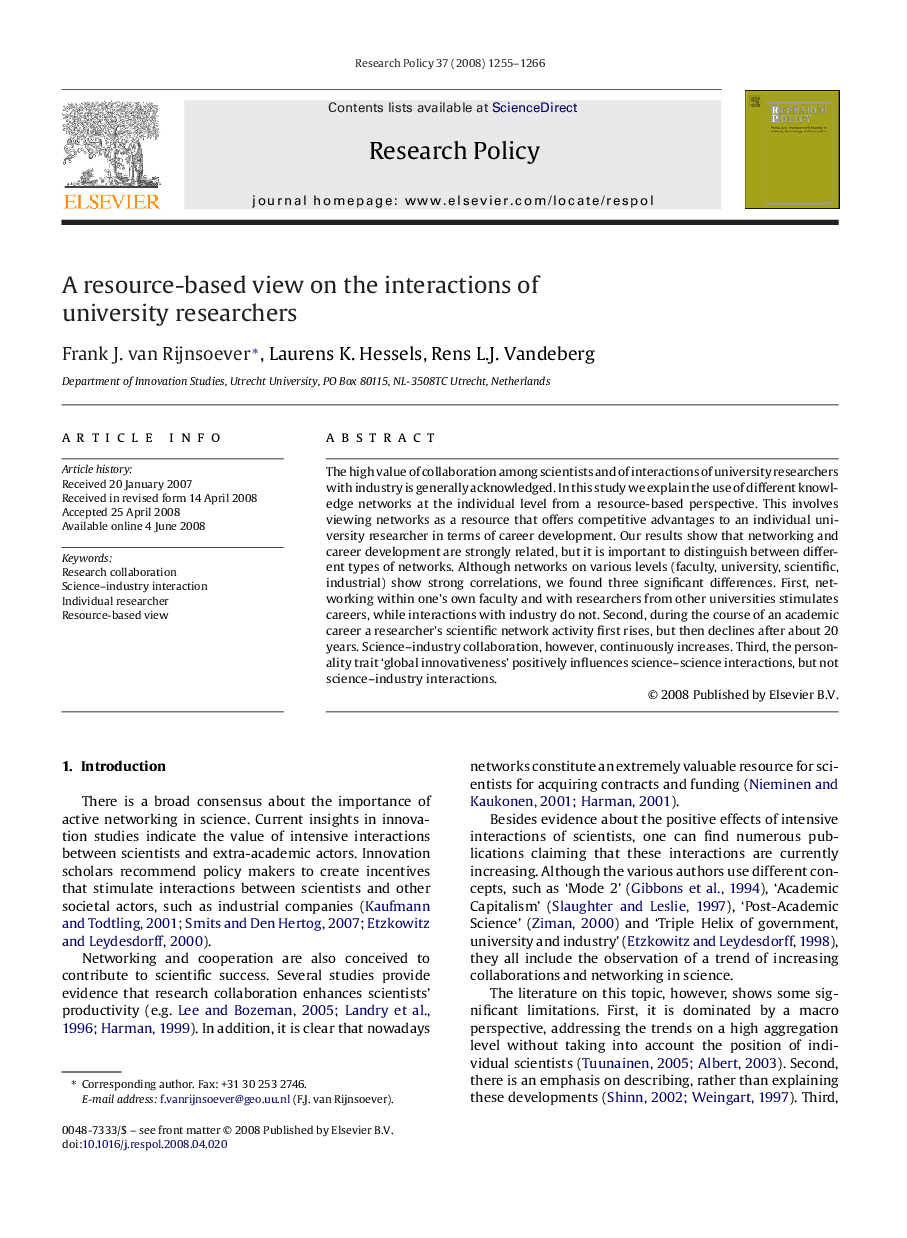| Article ID | Journal | Published Year | Pages | File Type |
|---|---|---|---|---|
| 984753 | Research Policy | 2008 | 12 Pages |
The high value of collaboration among scientists and of interactions of university researchers with industry is generally acknowledged. In this study we explain the use of different knowledge networks at the individual level from a resource-based perspective. This involves viewing networks as a resource that offers competitive advantages to an individual university researcher in terms of career development. Our results show that networking and career development are strongly related, but it is important to distinguish between different types of networks. Although networks on various levels (faculty, university, scientific, industrial) show strong correlations, we found three significant differences. First, networking within one's own faculty and with researchers from other universities stimulates careers, while interactions with industry do not. Second, during the course of an academic career a researcher's scientific network activity first rises, but then declines after about 20 years. Science–industry collaboration, however, continuously increases. Third, the personality trait ‘global innovativeness’ positively influences science–science interactions, but not science–industry interactions.
